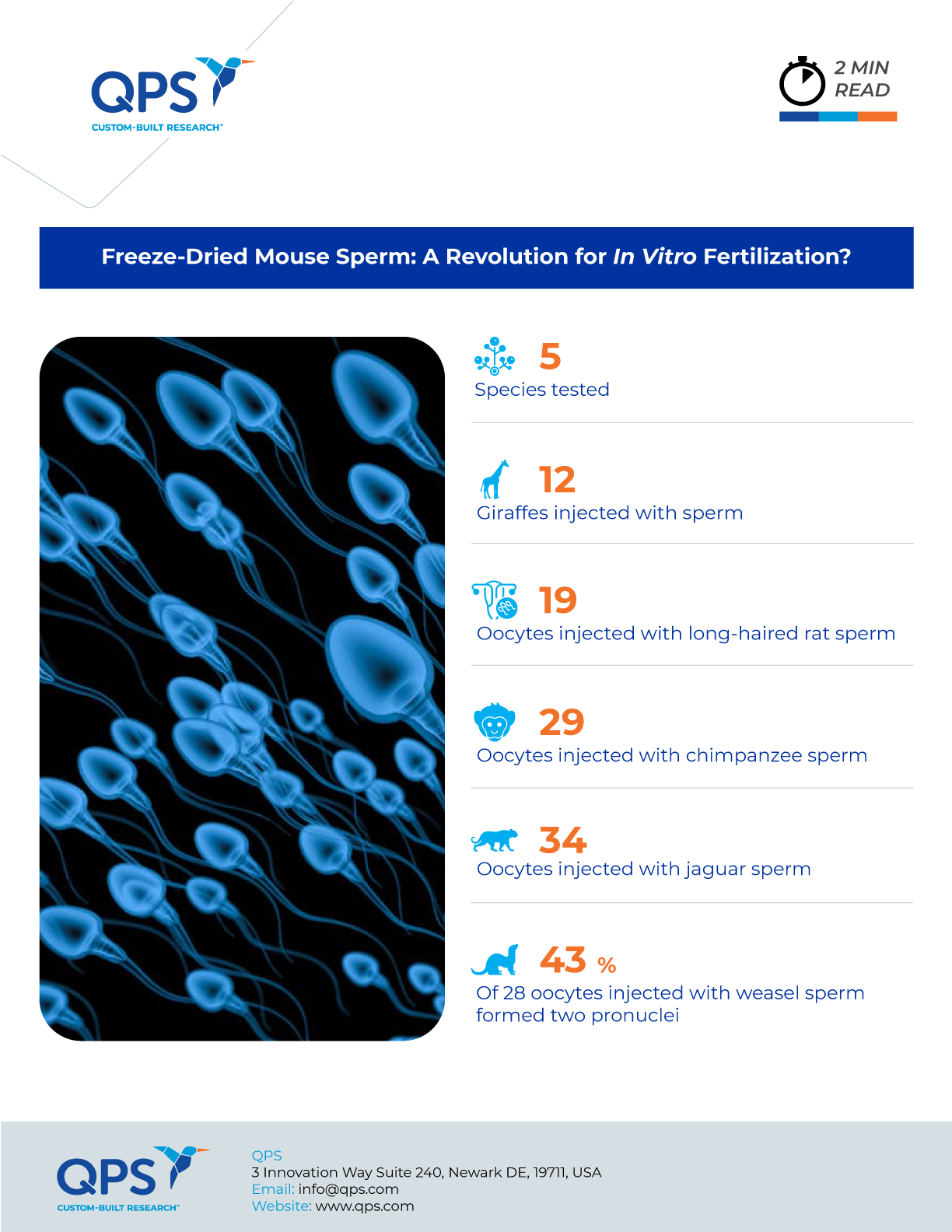When you think of a scientific laboratory, you might picture high-tech equipment, high-powered centrifuges, and bubbling vats of mysterious chemicals. However, the inner workings of the scientific community are often a bit more mundane. Take, for example, a group of researchers in Japan who were at their wits’ end as they tried to transport bottles of mouse sperm. Per Science Daily, the sperm kept breaking in transit – until the researchers developed a way to freeze-dry the sperm on a plastic sheet for safe transport. Now, the researchers have published their methods in the journal iScience – methods that could revolutionize in vitro fertilization practices.
Mouse Sperm Poses a Research Problem
The study was led by researcher Daiyu Ito, a member of Teruhiko Wakayama’s lab at the University of Yamanashi. Per Science Daily, that lab was the first to freeze-dry and preserve mammalian sperm successfully. The preserved sperm was initially sent to space so researchers could study the effects of space radiation on baby mice; however, the sperm was transported in small glass bottles, which broke easily. The team needed to figure out how to safely send a large amount of mouse sperm to space – using an innovative method and tools that wouldn’t shatter or require much preservation space.
Working with Freeze-Dried Mouse Sperm
The team decided on an unorthodox shipping method: placing the sperm inside thin plastic sheets. Unfortunately, the sheets were toxic to the sperm. The researchers then discovered that they could place weighing paper between the plastic sheets to protect the sperm, creating what the scientists called a “sperm book.” The book was then stored in a freezer, preserving the sperm until it was needed for further experiments. Ito’s team found that the sperm was still potent after freeze-drying and mailing it. “When I developed this method for preserving mouse sperm by freeze-drying it on a sheet, I thought that it should be able to be mailed on a postcard, and so when offspring were actually born after being mailed, I was very impressed,” Ito told Science Daily.
Implications for In Vitro Fertilization
As mentioned above, the team’s research could have a fascinating impact on in vitro fertilization. If scientists can perfect the “sperm book” mailing method, their next step is to rehydrate the freeze-dried sperm, readying it for fertilization. This could, hypothetically, allow researchers to preserve large amounts of genetic material for study or assistance with the in vitro fertilization process. “It is now recognized that genetic resources are an asset to humanity’s future. Even though many genetic traits are not needed for survival, depending on the environmental context, it is necessary to preserve them,” says Wakayama. “The plastic sheet preservation method in this study will be the most suitable method for the safe preservation of a large amount of valuable genetic resources because of the resistance to breakage and less space required for storage.” Less storage space and reduced breakage both point to more flexibility for human fertility studies.
_____
While freeze-dried mouse sperm may not seem like the most consequential topic of study, it illustrates that all life-changing scientific research builds on previous findings, however small.
Did you enjoy this blog post? Check out our other blog posts as well as related topics on our Webinar page.
QPS is a GLP- and GCP-compliant contract research organization (CRO) delivering the highest grade of discovery, preclinical and clinical drug research development services. Since 1995, it has grown from a tiny bioanalysis shop to a full-service CRO with 1,100+ employees in the U.S., Europe and Asia. Today, QPS offers expanded pharmaceutical contract R&D services with special expertise in neuropharmacology, DMPK, toxicology, bioanalysis, translational medicine and clinical development. An award-winning leader focused on bioanalytics and clinical trials, QPS is known for proven quality standards, technical expertise, a flexible approach to research, client satisfaction and turnkey laboratories and facilities. Through continual enhancements in capacities and resources, QPS stands tall in its commitment to delivering superior quality, skilled performance and trusted service to its valued customers. For more information, visit www.qps.com or email info@qps.com.








